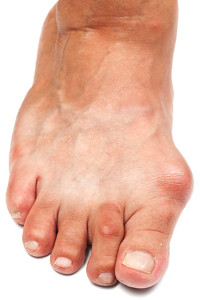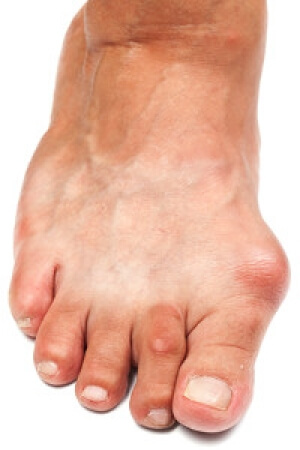Connect With Us
Featured Articles

Wounds That Don't Heal Need to Be Checked
Why Live with Pain and Numbness in Your Feet?
How Pregnancy Affects Your Feet
 When weight gain occurs during pregnancy, a woman’s center of gravity may change. Typically, this adds pressure to the knees and feet, potentially causing edema and over-pronation. Over-pronation (in-ward rolling feet) can cause the arches to flatten because of the additional weight. Strain on the calves and feet are common results of over-pronation, in addition to pain in the feet. Edema, or swelling, commonly occurs in the feet during the latter stages of pregnancy. Treatment may consist of wearing footwear that provides shock absorption and extra support. Elevating the feet can also help provide relief, as can eating a well-balanced diet and staying hydrated by drinking plenty of water. By avoiding foods high in salt and exercising regularly, it's possible to keep the swelling to a minimum. A consultation with a podiatrist may be advised if swelling and pain persist in the feet.
When weight gain occurs during pregnancy, a woman’s center of gravity may change. Typically, this adds pressure to the knees and feet, potentially causing edema and over-pronation. Over-pronation (in-ward rolling feet) can cause the arches to flatten because of the additional weight. Strain on the calves and feet are common results of over-pronation, in addition to pain in the feet. Edema, or swelling, commonly occurs in the feet during the latter stages of pregnancy. Treatment may consist of wearing footwear that provides shock absorption and extra support. Elevating the feet can also help provide relief, as can eating a well-balanced diet and staying hydrated by drinking plenty of water. By avoiding foods high in salt and exercising regularly, it's possible to keep the swelling to a minimum. A consultation with a podiatrist may be advised if swelling and pain persist in the feet.
Pregnant women with swollen feet can be treated with a variety of different methods that are readily available. For more information about other cures for swollen feet during pregnancy, consult with one of our podiatrists from APEX Foot & Ankle Center. Our doctors will attend to all of your foot and ankle needs.
What Foot Problems Can Arise During Pregnancy?
One problem that can occur is overpronation, which occurs when the arch of the foot flattens and tends to roll inward. This can cause pain and discomfort in your heels while you’re walking or even just standing up, trying to support your baby.
Another problem is edema, or swelling in the extremities. This often affects the feet during pregnancy but tends to occur in the later stages.
How Can I Keep My Feet Healthy During Pregnancy?
- Wearing orthotics can provide extra support for the feet and help distribute weight evenly
- Minimize the amount of time spent walking barefoot
- Wear shoes with good arch support
- Wear shoes that allow for good circulation to the feet
- Elevate feet if you experience swelling
- Massage your feet
- Get regular, light exercise, such as walking, to promote blood circulation to the feet
If you have any questions please feel free to contact our offices located in Fort Myers, Shellpoint, and Naples, FL . We offer the newest diagnostic and treatment technologies for all your foot and ankle needs.
Pregnancy and Foot Health
Many pregnant women complain about foot pain while they are expecting. Foot pain can primarily be caused by weight gain and hormonal changes taking place in the body. By understanding how pregnancy impacts the health of a woman's feet, a pregnant woman can take action to keep her feet as healthy and comfortable as possible.
Because a woman's weight changes during pregnancy, more pressure is brought to bear on both the legs and the feet. This weight shift can cause two major foot problems: over-pronation, also known as flat feet, as well as edema, which is swelling of the feet. Over-pronation occurs when the arch of the foot flattens, causing the foot to roll inwards when the individual is walking, and can aggravate the plantar fascia tissues located along the bottom of the feet. If these tissues become inflamed, a pregnant woman can experience pain in the heel of the foot as well as severe foot pain while walking or standing. Swelling of the feet, or edema, often occurs in the later stages of pregnancy. It is caused by slow circulation and water retention, and may turn the feet a light purple color.
To keep feet in good health and prevent over-pronation, pregnant women should avoid walking barefoot and be sure they are wearing shoes that offer good arch support. A device known as an orthotic can be added to regular footwear in order to provide additional support for the feet during pregnancy. Any expectant mother whose feet hurt should first check to see if the shoes she is wearing are old, worn out and not offering the proper support necessary for distributing the weight of her body during pregnancy.
To treat edema of the feet, a good start is to wear quality footwear which offers support and good circulation. Keep feet elevated whenever possible by using a foot stool while seated. Stay well hydrated by drinking plenty of water to prevent water retention in the feet. Any swelling that occurs in only one foot should be examined as soon as possible by a doctor.
Good foot health during pregnancy can help expectant mothers avoid foot pain that leads to other health problems. Massaging the feet and doing regular gentle exercise like walking aids foot health by contributing to good circulation. Supportive shoes are also a good investment that will support foot health during pregnancy.
Bunions and How They are Treated
 A bunion is a deformity that occurs on the joint at the base of the big toe. Though the exact cause of bunions is somewhat disputed, wearing tight fitting shoes and genetics tend to play a role in the development and exacerbation of them. Common symptoms that are usually associated with bunions include swelling, soreness, pain, and redness around the joint and bump. Bunions can become worse over time, and poorly-supportive footwear, like high heels, have been associated with worsening them. It is recommended to see a podiatrist when you notice a bunion forming even when it does not cause pain. If you have a bunion that is causing you pain, you should see one right away. A podiatrist will generally offer non-surgical options first if the bunion is not severe. These include bunion pads to relieve pressure off the bunion, pain and anti-inflammatory medication, and suggesting roomier shoes. If the pain continues or worsens and all non-surgical options have failed, surgery may be considered.
A bunion is a deformity that occurs on the joint at the base of the big toe. Though the exact cause of bunions is somewhat disputed, wearing tight fitting shoes and genetics tend to play a role in the development and exacerbation of them. Common symptoms that are usually associated with bunions include swelling, soreness, pain, and redness around the joint and bump. Bunions can become worse over time, and poorly-supportive footwear, like high heels, have been associated with worsening them. It is recommended to see a podiatrist when you notice a bunion forming even when it does not cause pain. If you have a bunion that is causing you pain, you should see one right away. A podiatrist will generally offer non-surgical options first if the bunion is not severe. These include bunion pads to relieve pressure off the bunion, pain and anti-inflammatory medication, and suggesting roomier shoes. If the pain continues or worsens and all non-surgical options have failed, surgery may be considered.
If you are suffering from bunions, contact one of our podiatrists of APEX Foot & Ankle Center. Our doctors can provide the care you need to keep you pain-free and on your feet.
What Is a Bunion?
A bunion is formed of swollen tissue or an enlargement of boney growth, usually located at the base joint of the toe that connects to the foot. The swelling occurs due to the bones in the big toe shifting inward, which impacts the other toes of the foot. This causes the area around the base of the big toe to become inflamed and painful.
Why Do Bunions Form?
Genetics – Susceptibility to bunions are often hereditary
Stress on the feet – Poorly fitted and uncomfortable footwear that places stress on feet, such as heels, can worsen existing bunions
How Are Bunions Diagnosed?
Doctors often perform two tests – blood tests and x-rays – when trying to diagnose bunions, especially in the early stages of development. Blood tests help determine if the foot pain is being caused by something else, such as arthritis, while x-rays provide a clear picture of your bone structure to your doctor.
How Are Bunions Treated?
- Refrain from wearing heels or similar shoes that cause discomfort
- Select wider shoes that can provide more comfort and reduce pain
- Anti-inflammatory and pain management drugs
- Orthotics or foot inserts
- Surgery
If you have any questions, please feel free to contact our offices located in Fort Myers, Shellpoint, and Naples, FL . We offer the newest diagnostic and treatment technologies for all your foot care needs.
Featured Articles
- May 2025
- April 2025
- March 2025
- February 2025
- January 2025
- December 2024
- November 2024
- October 2024
- September 2024
- August 2024
- July 2024
- June 2024
- May 2024
- April 2024
- March 2024
- February 2024
- January 2024
- December 2023
- November 2023
- October 2023
- September 2023
- August 2023
- July 2023
- June 2023
- May 2023
- April 2023
- March 2023
- February 2023
- January 2023
- December 2022
- November 2022
- October 2022
- September 2022
- August 2022
- July 2022
- June 2022
- May 2022
- April 2022
- March 2022
- February 2022
- January 2022
- December 2021
- November 2021
- October 2021
- September 2021
- August 2021
- July 2021
- June 2021
- May 2021
- April 2021
- March 2021
- February 2021
- January 2021
- December 2020
- November 2020
- October 2020
- September 2020
- August 2020
- July 2020
- June 2020
- May 2020
- April 2020
- March 2020
- February 2020
- January 2020
- December 2019
- November 2019
- October 2019
- September 2019
- August 2019
- July 2019
- June 2019
- May 2019
- April 2019
- March 2019
- February 2019
- January 2019
- December 2018
- November 2018
- October 2018
- September 2018
- August 2018
- July 2018
- June 2018
- May 2018
- April 2018
- March 2018
- February 2018
- January 2018
- December 2017
- November 2017
- October 2017
- September 2017
- August 2017
- July 2017
- June 2017
- May 2017
- April 2017
- March 2017
- February 2017
- January 2017
- December 2016
- November 2016
- October 2016
- September 2016
- August 2016
- July 2016
- June 2016
- May 2016
- April 2016
- March 2016
- February 2016
- January 2016















